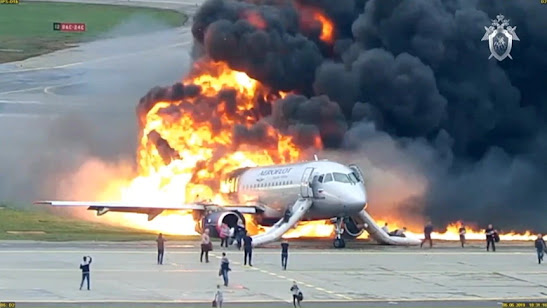The nation is suffering from the consequences of
installing corrupt and incompetent leadership over the course of many years.
In 2016, I could see the country returning to the
attitudes it had prior to the 2008-2009 bust.
Hank Paulson, Nancy Pelosi, Janet Yellen, Ben Bernanke, Obama, etc. set
up a mindset within the population that no matter what, the Fed would have Wall
Street’s back. That idiot George W. Bush
made the statement in a meeting when Bear Stearns and Lehman went tits up that
the whole enchilada could tank – and it would have without the intervention of
Congress and the Fed. And yes, many “too
big to fail” entities would have failed.
Instead, the inevitable was put off.
The can was successfully kicked down the road a little further. By 2018, it became abundantly clear how
addicted to the Fed’s cheap funding Wall Street had become. For that matter, the political class had as
well. I remember Trump publicly lambasting Powell
for ever so slightly raising the overnight interest rate to something
that was still historically very low.
All real estate developers love cheap interest rates. Trump was in many ways a bag of hot air and I
doubt that he was really worth what he claimed.
Powell should have told him to go fuck himself when he was pressuring
him to lower interest rates. Strangely,
I think Trump would have respected him had he done so as that’s the way
real estate developers from Queens, NY roll.
He may not have liked Powell, but he would have respected him.
Covid-19 was not responsible for the mess that this country is in today. It was the reaction taken by
leadership when Covid-19 broke out that has caused this current situation. Policy error piled upon policy error over the
course of several years were compounded again after Covid-19 emerged. Sprinkle in a
little corruption and you have a perfect source of mistrust for the most
powerful economic institution in the US and possibly, the world. The Fed’s glory days are behind it but it remains an 800 pound gorilla in the financial markets.
My advice to Powell: throw out anyone who showed any
signs of impropriety during the 2019 – 2020 timeframe. Restore your integrity. Throw them to the wolves publicly and make an
example out of them.
From Forbes, 2/12/2022: "The U.S. Federal Reserve, responding to
a Freedom of Information Act request by Reuters, said there are about 60 pages
of correspondence between its ethics officials and policymakers regarding
financial transactions conducted during the pandemic year 2020.
"But
it 'denied in full' to release the documents, citing exemptions under
the information act that it said applied in this case."
So, this public
institution, sitting atop the U.S. financial system with immense power to alter
markets and the economy, has "denied in full" to release key
information about the insider trading issue? Why not a redacted release or even
a summary of what those 60 pages are all about? The obvious conclusion is that
the information is too revealing - that it shows appearances of impropriety.
Then, for the fucking love of God, stop listening to
Neel Kashkari and Raphael Bostic entirely. Those two could not find their own asses using both hands, a compass and a map. They are feathers in the wind who are dead weight on the Great Ship Fed. Start listening
to Bullard.
Lastly, please, please, please – go to Tom Hoenig
and BEG him to come back. Pull whatever
fucking procedural strings you have to pull to get him back into the
discussions about future policy as he is, to my mind, Chingachgook, the last of the Mohican Chiefs.
Bio
from the Fed History: Thomas Hoenig, who served as president of the Federal Reserve
Bank of Kansas City from 1991 to 2011, was the first president to rise through
the ranks of the organization. He became well known for his views on the
"too big to fail" issue and his dissenting votes on the Federal Open
Market Committee in 2010.
Hoenig, the
second of seven siblings, was born in Fort Madison, Iowa. The son of a plumbing
contractor, he left Iowa in the mid-1960s to attend what was then called St.
Benedict’s College in Atchison, Kansas, earning a bachelor’s degree in
economics and mathematics from the school, which was later renamed Benedictine
College. Plans for graduate school were delayed by the draft for the Vietnam
War.
Once back in
the states, Hoenig married Cynthia Stegeman and moved to Ames, Iowa, where he
pursued a master’s degree, and later a doctorate, from Iowa State University.
While visiting
Kansas City in 1971, Hoenig saw a newspaper article about how the Kansas City
Fed had created the Division of Bank Supervision and Structure that would
conduct financial and competitive analysis on bank mergers.
Two years
later, Hoenig applied for a job in the Division, and he took the position in
part because of his familiarity with the area but also because it was a unique
opportunity that perfectly matched his interests.































